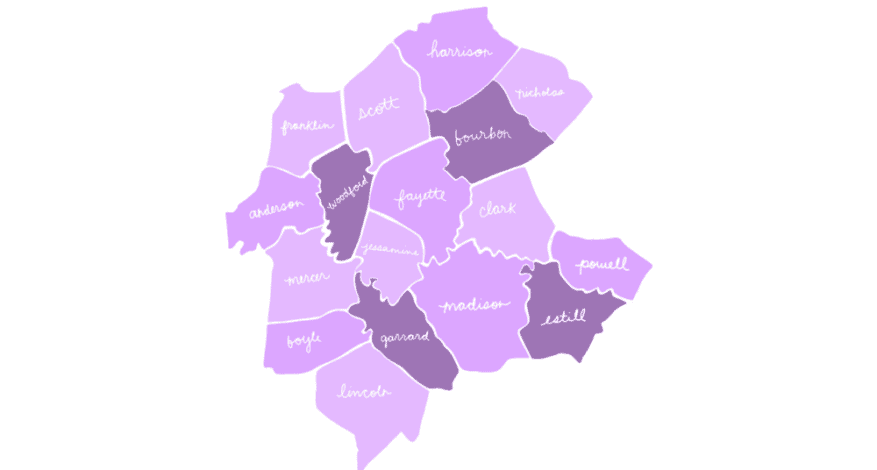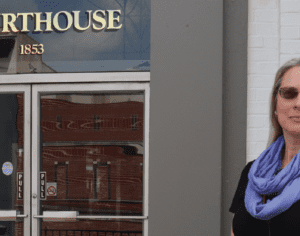Serving Harrison and Nicholas Counties
Survivors deserve to be supported in their home community.
Although our emergency shelter is located in Lexington, staff of our organization live and work in all 17 counties of our service area – Anderson, Bourbon, Boyle, Clark, Estill, Fayette, Franklin, Garrard, Harrison, Jessamine, Lincoln, Madison, Mercer, Nicholas, Powell, Scott, and Woodford.
Harrison & Nicholas Counties
Anne Hodge is the advocate for survivors in Nicholas or Harrison Counties. Although each day is different, Anne dedicates much of her time to providing support for survivors before, during, and after family court hearings.
What is a typical week for Anne?
- Anne provides legal advocacy during domestic violence court hearings on Mondays, Wednesdays, and Fridays.
- She also facilitates a weekly online support group about protective orders and legal basics, and connects survivors to other support groups offered by our organization.
- Another important activity is partnering with local organizations to make referrals for food, clothing, and other needs that survivors might experience.
“People may need food or help with their electric bill or gas money. I refer them to agencies for financial assistance like Community Action or the Ministerial Association,” Anne explains. “Community partners are very valuable to our program and I keep in close contact with them.”
Legal Justice Matters
Anne also coordinates the L-JUST project, a grant-funded legal justice effort to create an informed and supportive network of legal professionals across the central Kentucky region. One way Anne accomplishes this goal is through partnerships with attorneys who agree to provide no-fee services and representation for survivors navigating complex legal situations.
The L-JUST project is supported by subgrant number VAWA-2021-GreenHou-00029 subawarded by the state administering office for the Office on Violence Against Women, U.S. Department of Justice’s STOP Formula Grant Program. The opinions, findings, conclusions, and recommendations expressed in this publication are those of the author(s) and do not necessarily reflect the views of the state or the U.S. Department of Justice.




